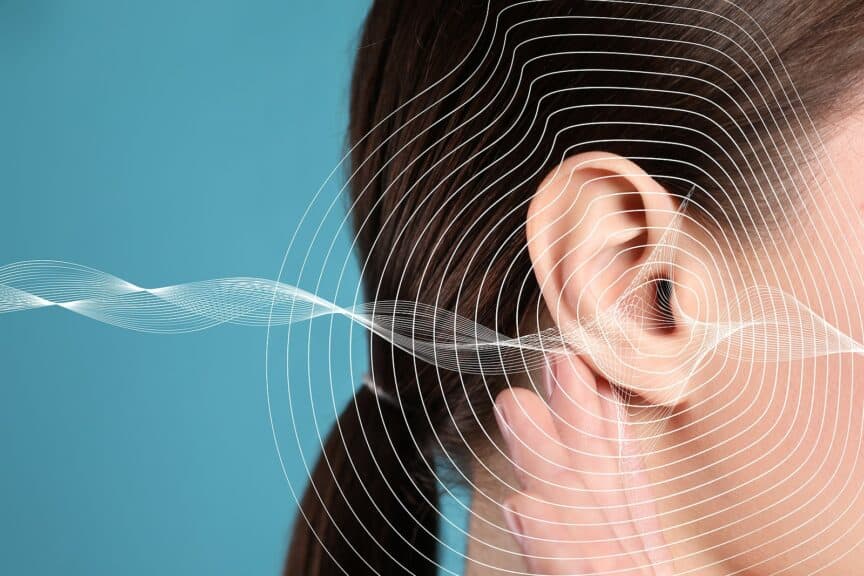Hearing loss is a widespread concern, affecting millions of individuals worldwide. It can impact our daily lives, hindering communication, relationships, and overall well-being. Fortunately, advancements in the field of audiology have led to remarkable developments in hearing loss prevention, diagnosis, and management.
The first step in managing hearing loss is early detection. Regular hearing evaluations are crucial, as they allow us to identify any changes in your hearing abilities over time. Many people don’t realize that hearing loss can be gradual, making it essential to monitor your hearing regularly, even if you already use hearing aids. Early detection enables us to tailor solutions to your unique needs and potentially prevent further deterioration.
Advanced Hearing Assessments
Modern audiology incorporates cutting-edge technologies for comprehensive hearing assessments. Beyond the standard audiogram, we now have access to sophisticated diagnostic tools like otoacoustic emissions (OAEs) and auditory brainstem response (ABR) testing. OAEs can detect damage to the tiny hair cells in your inner ear, often before it becomes evident on a traditional audiogram. ABR testing, on the other hand, assesses the functioning of your auditory nerve and brainstem, helping us pinpoint the root cause of hearing issues.
Recent Research Insights
Recent research has shed light on the intricate nature of hearing loss and its potential links to overall health. Studies have shown that untreated hearing loss may lead to social isolation, cognitive decline, and an increased risk of falls. It’s essential to recognize these connections, as they underscore the importance of addressing hearing loss promptly. Moreover, research into genetic factors influencing hearing loss is ongoing, paving the way for personalized treatment options in the future.
Advancements in Hearing Aid Technology
The last decade has witnessed remarkable advancements in hearing aid technology. Today’s hearing aids are smaller, more discreet, and equipped with cutting-edge features that enhance sound quality and user experience. Here are some key factors to consider when evaluating whether to update your hearing aids:
Sound Processing
Newer hearing aids employ sophisticated algorithms to distinguish speech from background noise, providing improved clarity in noisy environments. If you find yourself struggling in challenging listening situations, it may be time to consider an upgrade.
Connectivity
Many modern hearing aids offer wireless connectivity to smartphones and other devices, allowing you to stream calls, music, and audio directly to your hearing aids. This feature can significantly enhance your communication and entertainment experiences.
Rechargeable Batteries
Hearing aids with rechargeable batteries eliminate the need for frequent battery changes. They are more eco-friendly and convenient, ensuring your devices are always ready when you need them.
Tinnitus Management
If you experience tinnitus (ringing in the ears), some hearing aids now include specialized tinnitus management programs to provide relief and improve your overall comfort.
Customization
The latest hearing aids can be precisely customized to your hearing profile, ensuring a tailored solution that meets your unique needs.
Potential Futuristic Interventions
Looking ahead, the field of audiology holds exciting possibilities for futuristic interventions. Researchers are exploring advanced technologies such as cochlear implants with improved speech recognition, regenerative therapies to restore damaged hair cells, and brain-computer interfaces that could bypass damaged auditory pathways. While these interventions are still in development, they offer hope for those with more severe hearing loss.
In conclusion, the decision to update your hearing aids should be based on a combination of factors, including changes in your hearing, advancements in technology, and your specific lifestyle and communication needs. Early detection remains the cornerstone of effective hearing care, as it enables us to provide timely and tailored solutions.
As a leading audiologist, my mission is to empower you with knowledge and compassionate care. I urge you to prioritize your hearing health by scheduling regular hearing evaluations, staying informed about the latest advancements, and considering updates to your hearing aids when necessary. Remember, your hearing is an essential part of your overall well-being, and taking proactive steps can significantly improve your quality of life.
If you have any questions or concerns about your hearing or the latest advancements in hearing care, please don’t hesitate to reach out. Together, we can navigate the journey toward better hearing and a brighter future.

